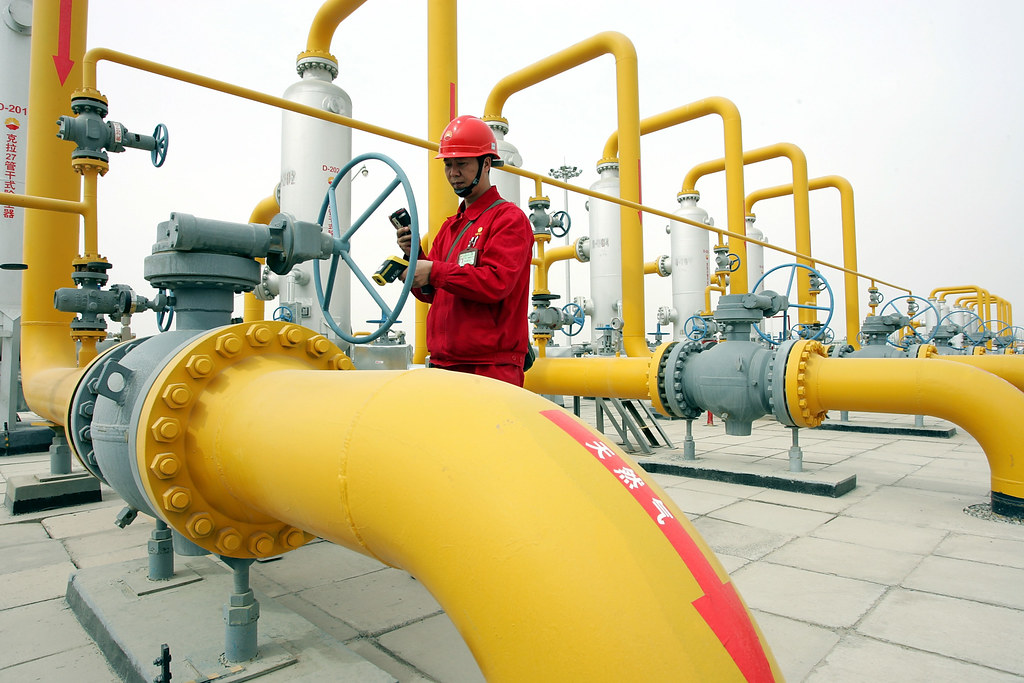What China combines between Russian oil, metals and cryptocurrencies

China negotiates with Russia to buy cheap barrels of oil. Meanwhile, cryptocurrency mining is picking up strength, but the macroeconomic picture isn't exciting. All the details
China is in talks with Russia to purchase cheap crude oil, which it will use to replenish its strategic stocks. According to Bloomberg sources, discussions are conducted at the government level and energy companies are little involved.
DISCOUNTED BARRELS
While the invasion of Ukraine has pushed oil prices further, Russia is selling its crude oil at a steep discount to offset the risk that buyers take to violate international sanctions. The advantageous cost of Russian barrels is seen by Beijing – the nation is the largest importer of crude oil – as an opportunity to replenish its reserves without spending too much.
Bloomberg points out that the Russians and the Chinese have not yet agreed on the volumes and details of the transaction, and there is a possibility that the deal will not materialize.
WHO BLOCKS AND WHO IMPORTS RUSSIAN CRUDE
The United States and the United Kingdom have banned imports of Russian oil, and the European Union – which is however more dependent on it – is also considering doing the same, in order to deprive the Kremlin of a key source of revenue: not all member countries agree, however. However, Russian crude oil continues to be bought by India and China, for example, due to its affordability.
Since Moscow began the invasion of Ukraine, Chinese refineries have imported Russian crude oil even though the very strict policy of containing coronavirus infections has brought down domestic oil demand: in April it fell by 6.7 percent on a basis yearly. The situation in China, by virtue of its role as a major buyer of barrels, has halted the rise in the price of oil on international markets, although so far this year the value of Brent (the main benchmark ) is 40 per cent higher than to 2021.
THE OIL RESERVES OF CHINA
China does not disclose the capacity of its oil reserves, but it is estimated that they are capable of storing more than a billion barrels, including commercial and strategic stocks. According to data analysis company Kpler, reserves currently contain 926.1 million barrels: more than 869 million in mid-March, but 6 percent lower than the record set in September 2020. For comparison, the strategic reserve of United States can host 714 million barrels of oil; at the moment it retains about 538 million.
Last year, to encourage the lowering of crude oil prices, China sold barrels from its reserves; the move, however, only had short-term effects.
WHAT HAPPENS TO METALS AND THE CHINESE ECONOMY
In addition to oil, China is also a major importer of industrial metals. Gianclaudio Torlizzi , commodities analyst and founder of T-Commodity, talks about the hedging underway today on Chinese stock indices and base metals following the latest monetary stimulus action taken by the country's central bank to cut the prime rate at five years to 4.5 per cent.
However, the macroeconomic picture, Torlizzi specifies, remains negative, and the Chinese leadership finds itself at a crossroads: the monetary stimuli implemented so far have failed to give impetus to the economy, and the credit transmission mechanism has in fact jumped.
“From this perspective”, says the analyst, “a possible exit strategy for Beijing could come from helicopter money : a flood of liquidity from above similar to that adopted by Washington in 2020 to counter the recessive effects of the lockdowns. With one big difference though: in the Chinese version, fiscal stimuli would be implemented through the electronic yuan. It would be a game-changer because by doing so the Beijing government could decide exactly what to make the population spend (only products made in China?) And within what time frame ”.
“Regardless of the method, however”, concludes Torlizzi, “it is clear that this would generate a V-shaped restart of the economy, opening up to a new phase of stress for the world logistics sector and therefore to new inflationary pressures”.
THE MINING OF CRYPTOCURRENCIES
According to research by the Cambridge Center for Alternative Finance, cryptocurrency "miners" are managing to get around the restrictions imposed by the Chinese government and the business is registering important numbers. Beijing's squeeze on mining – due to large energy consumption and the desire to bring the sector under state control – has led miners to move to other countries, mainly Kazakhstan and the United States.
After the collapse of Chinese computing capacity, the country returned to second place in the world rankings (preceded by the United States) already last September. However, the mining of cryptocurrencies could now turn out to be a less profitable activity, given the collapse of bitcoin and other currencies, writes Il Sole 24 Ore .
This is a machine translation from Italian language of a post published on Start Magazine at the URL https://www.startmag.it/energia/cina-petrolio-metalli-criptovalute/ on Fri, 20 May 2022 08:06:19 +0000.
